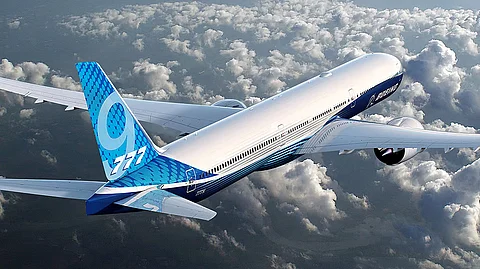
- NEWS
- the EDIT
- COMMENTARY
- BUSINESS
- LIFE
- SHOW
- ACTION
- GLOBAL GOALS
- SNAPS
- DYARYO TIRADA
- MORE

The Philippines is setting the stage for the manufacture and use of Sustainable Aviation Fuel (SAF) by producing enough agricultural waste feedstock to meet the country’s jet fuel needs and export potential.
In partnership with the leading global aerospace company Boeing, the Department of Transportation (DoTr) reaffirmed its dedication to promoting sustainable aviation fuel through innovation and cooperation with aviation stakeholders during the Philippines’ hosting of the SAF Forum 1 on Friday, 28 February.
According to the DoTr, the country possesses enough agricultural waste feedstock to cover all of its domestic jet fuel consumption demands, plus the potential for export.
“Our dedication to a sustainable aviation industry is demonstrated by the success of the Philippines Sustainable Aviation Fuel Forum. Through innovation and collaboration, we are setting the stage for the Philippines to become a leader in SAF production and usage,” the DoTr stated.
Additionally, the agency noted that SAF innovation and partnerships create jobs and provide opportunities to learn about the initiative.
The said forum advocated for SAF, an important tool for decarbonizing aviation, to speed up the reduction of aviation’s carbon footprint. Industry researchers claim that SAF can lower emissions by up to 80 percent when compared to standard jet fuel.
Boeing Southeast Asia President Penny Burtt emphasized the Philippines’ relationship with the global aerospace firm and their shared objective of furthering aviation decarbonization.
According to Burtt, Boeing has a long-standing partnership with the Philippines and its aviation industry.
He said Boeing is determined to keep up efforts to expand aviation capacity and decarbonize the sector locally in collaboration with the Philippine Department of Transportation and other industry partners.
“As commercial aviation works toward its net-zero goal by 2050, the Philippines has enough agricultural waste feedstock to meet all of its jet fuel needs,” she stated.
The said conference also emphasized key elements for achieving sustainable aviation fuel, including talent development, financial and legislative support, and feedstock availability for the strategic roadmap.
